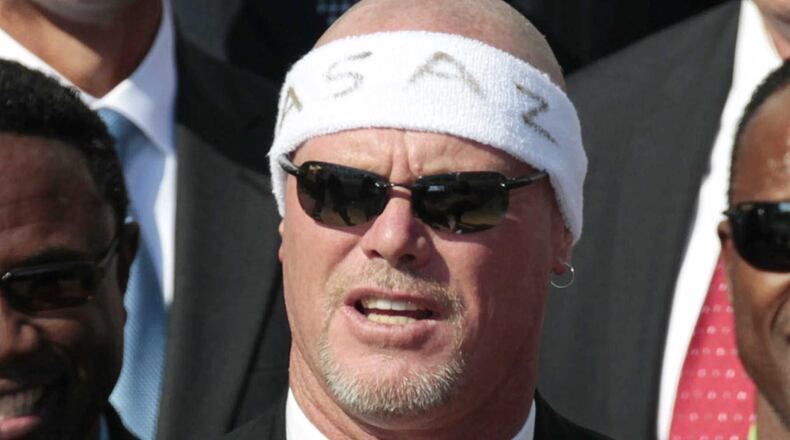These are strange times in America, where the value of labor is under attack not only by capitalists with obvious financial interests in encouraging this trend but also by the workers themselves. Lots of working folks are eager to tell other working folks they aren't worth more than they are being paid while enthusiastically defending the capitalists' efforts to devalue labor and pocket more and more profits.
This phenomenon happens when the target is low-skilled workers, as expected. But it also happens with professional athletes, who have a very clear positive impact on their company's bottom line.
Pro athletes, like movie stars and other entertainers, have specialized, marketable skills. There are a small number of athletes generating a large amount of revenue that create handsome profits for team owners. Yet some of the same reactionary vitriol aimed at the service industry worker is also aimed at athletes, for different reasons, any time they agitate for more money or fairer (or legal) treatment.
That's why I don't expect much public support for the ex-NFL players who filed a lawsuit alleging the league plied them with painkillers to keep them on the field while lying to the players about the extent of their injuries and the potential dangers of the painkillers.
From the Associated Press:
To speed injured athletes' return to the field, team doctors and trainers dispensed drugs illegally, without obtaining prescriptions or warning of the possible side effects, the plaintiffs contend.
Some football players said they were never told they had broken bones and were instead fed pills to mask the pain. One said that instead of surgery, he was given anti-inflammatory drugs and excused from practices so he could play in games. Others said that after years of free pills from the NFL, they retired addicted to painkillers. . . .
As a result of masking their pain with drugs, players developed heart, lung and nerve ailments; kidney failure; and chronic injuries to muscles, bones and ligaments, the lawsuit alleges.
According to the lawsuit, players were routinely given drugs that included narcotic painkillers Percodan, Percocet and Vicodin, anti-inflammatories such as Toradol, and sleep aids such as Ambien.
These claims are similar to those made by players in the concussion lawsuit , which the league settled for $765 million last year (a judge has yet to accept the deal). Like then, critics will contend players knew the risks of playing football and are just looking for a payday. They'll say athletes deserve no sympathy or support because they make a lot of money. And they'll contend that players would still play even if they knew the risks.
Never mind that players, like all layman, tend to accept the judgment of doctors and other medical personnel because they are the experts, after all. It's also stupid to assume all people will make the same decisions when they have all the information about risks—informed consent isn't something to be tossed aside because we think the information won't make a difference. And, again, the players make a lot of money because a small number of them generate a lot of revenues and profits.
While a warped sense of superiority and skewed "personal responsibility" ethics fuel anger against the fast-food worker asking for a few more bucks, it's jealousy that motivates animosity against athletes. People who don't have the kind of specialized, rare skills that generate tons of money are envious of those who do.
Thus they call professional athletes overpaid while those who profit from their skills in the form of revenues and increased franchise values escape scrutiny--better for the labor to make less so the owners can make more. College athletes are told they already are paid plenty in the form of scholarships and other perks, and so those who otherwise profess a love for the free market endorse NCAA schools colluding to suppress worker compensation.
Ain't that Amurica?
About the Author
Keep Reading
The Latest
Featured



